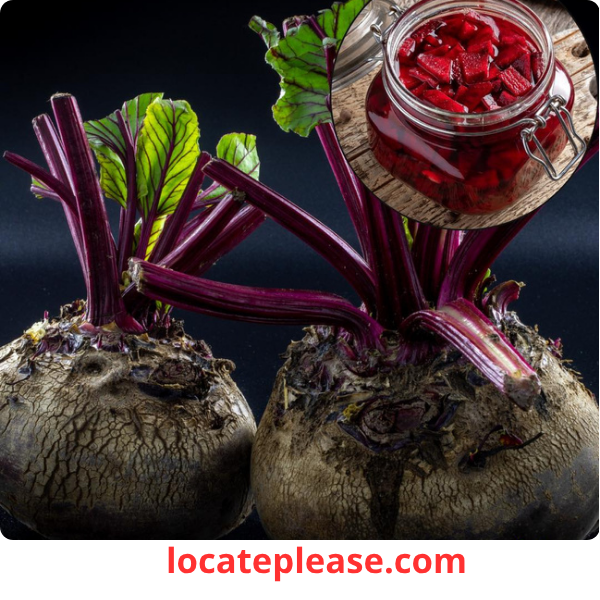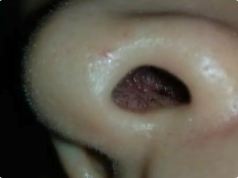Often dismissed as just a humble root vegetable with a vibrant red hue, beetroot (Beta vulgaris) is quietly one of the most powerful superfoods on the planet.
Beyond its earthy flavor and striking color, beetroot is packed with natural nitrates, antioxidants, vitamins, and anti-inflammatory compounds that work together to prevent, manage, and even reverse a wide range of health conditions.
From lowering blood pressure to boosting brain function and fighting cancer cells, beetroot’s healing potential is backed by science, tradition, and growing clinical research.
Let’s explore 12 serious health conditions that beetroot may help treat — and why you should consider adding this vibrant veggie to your daily diet.
Nutritional Powerhouse: What Makes Beetroot So Special?
Per 100g of cooked beetroot:
- Calories: 44 kcal
- Folate (B9): 20% of Daily Value (supports cell repair and pregnancy health)
- Manganese: 14% DV (supports metabolism and bone health)
- Potassium: 9% DV (regulates blood pressure)
- Vitamin C: 6% DV (boosts immunity)
- Fiber, iron, magnesium, phosphorus
- Rich in dietary nitrates and betalains — powerful plant compounds with antioxidant and anti-inflammatory effects
These nutrients work synergistically to support every system in your body — from your heart to your brain, liver to your gut.
1. High Blood Pressure (Hypertension)
How Beetroot Helps:
Beetroot is one of the best natural remedies for high blood pressure thanks to its high nitrate content. Once consumed, nitrates convert into nitric oxide, a molecule that relaxes and dilates blood vessels, improving circulation and reducing strain on the heart.
✅ Research Says:
A 2015 study in Hypertension found that drinking 250ml of beetroot juice daily lowered systolic blood pressure by 8–10 mmHg within hours.
💡 Tip: Drink 1 cup of fresh beet juice daily — best on an empty stomach.
2. Heart Disease
Heart disease is the leading cause of death worldwide, but beetroot offers strong protection.
Benefits:
- Reduces oxidative stress and inflammation
- Improves endothelial function (inner lining of blood vessels)
- Lowers LDL (“bad”) cholesterol
- Prevents plaque buildup in arteries
✅ How to Use: Add raw or roasted beets to salads, or blend into smoothies.
3. Anemia & Low Iron Levels
Beetroot is a natural ally in the fight against iron-deficiency anemia, especially in women and vegetarians.
Why It Works:
- Contains iron — essential for hemoglobin production
- High in folate, which supports red blood cell formation
- Packed with vitamin C, which enhances iron absorption
💡 Pro Tip: Pair beets with spinach and lemon juice for a triple-iron boost.
4. Liver Disease (Fatty Liver, Hepatitis)
Your liver detoxifies your body — and beetroot helps it do its job better.
How It Works:
- Betalains reduce liver inflammation and oxidative damage
- Stimulates glutathione production — the body’s master detoxifier
- Prevents fat accumulation in the liver (NAFLD)
✅ Best Form: Fresh beetroot juice (mix with lemon and ginger for added power).
5. Type 2 Diabetes
Despite its natural sweetness, beetroot has a low glycemic index and can actually help manage blood sugar.
Benefits:
- High fiber content slows glucose absorption
- Improves insulin sensitivity
- Reduces inflammation linked to insulin resistance
💡 Tip: Eat boiled or roasted beets in moderation — avoid sugary pickled versions.
6. Chronic Inflammation (Arthritis, IBD, etc.)
Chronic inflammation fuels diseases like arthritis, Crohn’s, and colitis. Beetroot fights back.
Why It Works:
- Betalains are potent anti-inflammatory agents
- Reduces C-reactive protein (CRP), a key inflammation marker
- Soothes gut lining and reduces flare-ups
✅ Try This: Blend beetroot with turmeric, ginger, and apple for a healing juice.
7. Cognitive Decline & Dementia
As we age, brain blood flow decreases — but beetroot can help reverse that.
How It Helps:
- Nitric oxide boosts blood flow to the brain, especially the frontal lobes
- Enhances oxygen delivery and neural connectivity
- Slows age-related cognitive decline
✅ Study Insight: Older adults who drank beet juice before walking showed improved brain function on MRI scans (Wake Forest University, 2017).
8. Cancer Prevention
While not a cure, beetroot shows promising anti-cancer properties in lab studies.
How It Fights Cancer:
- Betalains neutralize free radicals and protect DNA
- Inhibits growth of colon, breast, and prostate cancer cells
- May enhance the effectiveness of chemotherapy
⚠️ Note: More human trials are needed — but including beets in a cancer-preventive diet is highly recommended.
9. Digestive Disorders (Constipation, IBS, Bloating)
Beetroot is a natural gut healer.
Digestive Benefits:
- High in soluble and insoluble fiber — promotes regular bowel movements
- Acts as a prebiotic, feeding good gut bacteria
- Mild laxative effect
✅ Try This: Grated raw beetroot with yogurt — a delicious, gut-friendly combo.
10. Erectile Dysfunction (ED) & Sexual Health
Poor circulation is a major cause of ED — and beetroot improves blood flow naturally.
How It Helps:
- Nitric oxide dilates blood vessels, improving erectile function
- Boosts stamina and libido
- Supports cardiovascular health — key for sexual performance
💡 Tip: A daily glass of beet juice may be a natural alternative to ED medications.
11. Exercise Fatigue & Muscle Recovery
Athletes love beetroot — and for good reason.
Performance Benefits:
- Increases oxygen efficiency during exercise
- Delays fatigue by up to 16%
- Reduces muscle soreness post-workout
- Enhances mitochondrial function (energy production in cells)
✅ When to Use: Drink beet juice 2–3 hours before exercise for peak performance.
12. Obesity & Metabolic Syndrome
Beetroot supports weight loss and metabolic health — without extreme diets.
How It Helps:
- Low in calories, high in nutrients
- Fiber promotes fullness and reduces cravings
- Supports liver detox — essential for fat metabolism
- Regulates blood sugar and cholesterol
✅ Try This: Beetroot smoothie with cucumber, lemon, mint, and chia seeds — a metabolism-boosting powerhouse.
How to Add Beetroot to Your Diet
- Raw: Grate into salads or sandwiches
- Cooked: Roast, boil, or steam with olive oil and herbs
- Juiced: Blend with apple, carrot, or ginger
- Powdered: Add to smoothies, teas, or oatmeal
- Pickled: A tangy, gut-friendly snack (choose low-sugar versions)
🚨 Note: Beets may turn your urine or stool pink or red — this harmless effect is called beeturia and is completely normal.
Safety & Side Effects
Beetroot is safe for most people, but keep these in mind:
- Kidney stones: Beets are high in oxalates — limit if prone to calcium-oxalate stones
- Low blood pressure: If you’re on BP meds, monitor levels — beets can enhance the effect
- Diabetes: Eat in moderation — pair with fiber and protein to balance blood sugar
- Allergies: Rare, but possible — stop if you develop a rash or stomach upset
Final Thoughts: Nature’s Red Superfood
Beetroot isn’t just a colorful addition to your plate — it’s a medicinal marvel hiding in plain sight.
From your heart to your brain, liver to your libido, this unassuming root is quietly working to protect, heal, and energize your body.
So next time you see those deep red bulbs at the market — don’t walk past them.
Take them home.
Slice them.
Juice them.
Eat them.
Because when it comes to natural healing power, few foods rival the mighty beet.
One bite at a time, beetroot proves: the best medicine often grows in the soil.






